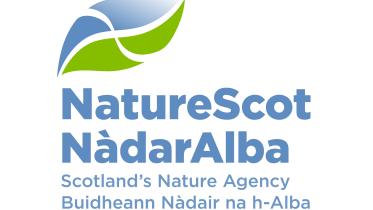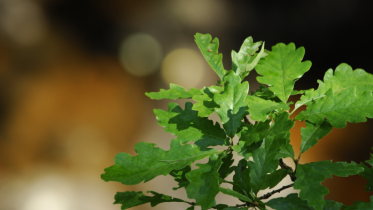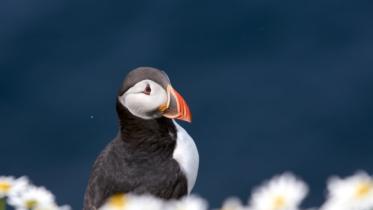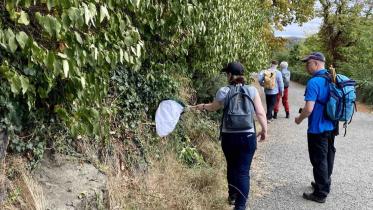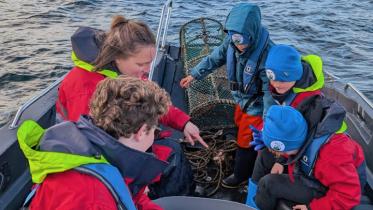SAC members
The Committee’s external members bring to NatureScot a mix of expertise in a wide range of disciplines.
The Scientific Advisory Committee (SAC) has up to seven members, plus one of our Board members as Chair.
All of the SAC members come from outside NatureScot. They bring to the table a mix of expertise in a wide range of disciplines.
Professor Peter Higgins
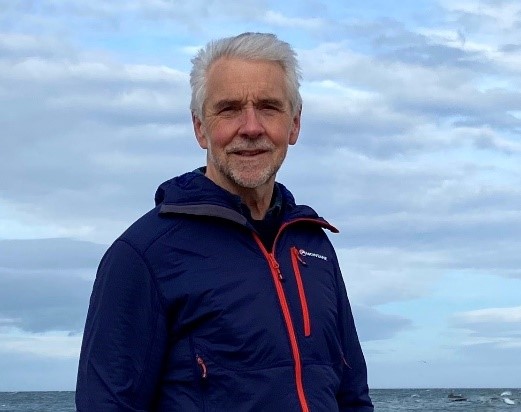
Pete is Professor of Outdoor, Environmental and Sustainability Education at the University of Edinburgh, and Director of the United Nations University Recognised Centre for Education for Sustainable Development (Scotland).
His background is in environmental sciences, freshwater and fisheries biology. Much of his career has been spent working in and for the environment promoting its educational, environmental, social and economic value through teaching, research, and policy development.
He Chaired the Scottish Government Ministerial Advisory/Implementation Groups on Learning for Sustainability, and was a Member of the National Parks Act Review Group. He is a Fellow of the Royal Society of Edinburgh, Principal Fellow of the Higher Education Academy, an expert advisor to the UK Commission for UNESCO and several international nature and sustainability education networks, and is Chair of the Board of Trustees of the Field Studies Council.
Pete will act as Chair of the Scientific Advisory Committee until 31 March 2025.
Kathy Dale
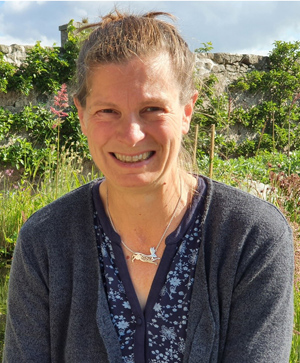
Kathy Dale has a BSc (Hons) degree in Ecology from Loughborough University and an MSc in The Biology of Water Resource Management from Napier University, Edinburgh. She is a Chartered Ecologist and has thirty-five years’ professional consultancy experience. She was a Principal Consultant at EnviroCentre Limited for 14 years before retiring in November 2020.
Kathy is authoritative in the fields of Ecological Impact Assessment (EcIA), Habitats Regulations Appraisal (HRA) and industry standard ecological surveying, research and good practice. She is an accomplished aquatic ecologist with wide-ranging knowledge of freshwater and coastal environments, including habitat and botanical surveying, site assessment and management, and devising survey and monitoring strategies. She specialises in aquatic macrophytes and has a specific interest in river restoration.
Kathy was a Founder Member of the Chartered Institute of Ecology and Environmental Management (CIEEM) and was instrumental in setting up the first Geographic Section, in Scotland. She is driven by the strong need to recognise ecology as a profession, to improve the standards of ecological research and reporting, and for ecologists to have professional representation. For a number of years, until November 2020, she was a member of the University of Aberdeen School of Biological Sciences (SBS) Programme Advisory Board (PAB), advising on the skills graduates require for a career in consultancy.
Professor Xavier Lambin

A population ecologist, Xavier is Professor of Ecology at the University of Aberdeen. Xavier undertook his PhD at the Universities of Louvain and British Columbia, and a post-doc at the Banchory Research station of the then Institute of Terrestrial Ecology before moving to the University of Aberdeen in 1993.
His research interests span:
- Empirical quantitative and theoretical approaches to population and ecosystem dynamics
- The demography, dispersal, dynamics and species interactions with fragmented and cyclically irruptive populations of voles and species that eat them
- The generation of evidence during and its use in informing conservation action, and wildlife management including in ecosystems undergoing restoration with pine martens and capercaillie
- The management of invasive non-native species, including American mink through participatory approaches
- He maintains 3 long term studies of water voles in Assynt and Balmoral (spanning 28 years), of tawny owl and field voles in Kielder Forest spanning 44 years dynamics and carnivores in the Cairngorms Connect partnership area.
Xavier is proud educator of junior researchers and is deeply committed to natural history education. Xavier is a Fellow of the Royal Society of Edinburgh.
Professor Jane Reid
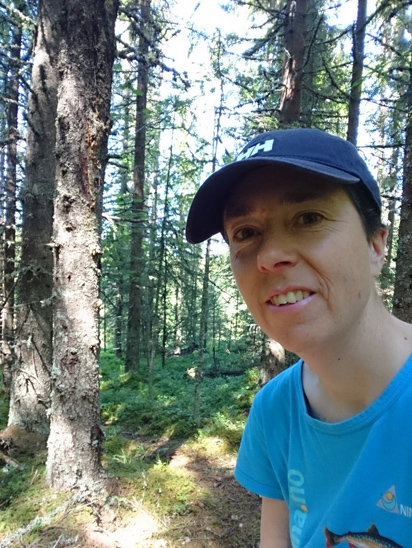
Jane is a Professor of Population and Evolutionary Ecology at the University of Aberdeen, and currently also an International Chair Professor at the Norwegian University of Science and Technology.
Jane’s research interests lie in understanding population dynamic and evolutionary responses to environmental variation and change. She is particularly interested in understanding the impacts of inbreeding in small populations, and in understanding the consequences of movements (dispersal and seasonal migration) for population and evolutionary dynamics. She focuses on long-term field studies of wild bird populations, primarily including red-billed choughs, European shags and song sparrows.
Jane is a Fellow of the Royal Society of Edinburgh and the Royal Norwegian Society of Sciences and Letters. She was previously awarded the Zoological Society of London Scientific Medal, and the Marsh Award for Ornithology. She is an experienced field ornithologist, and is a long-standing director of Fair Isle Bird Observatory Trust.
Professor Marian Scott
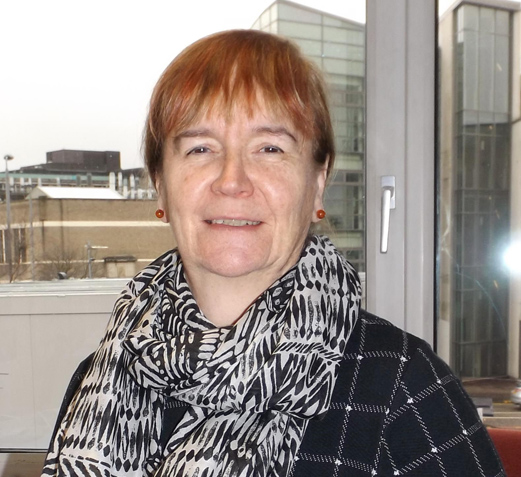
Marian is Professor of Environmental Statistics at the University of Glasgow. She gained her PhD at the University of Glasgow and has spent periods of study at the IAEA Marine Radioactivity Laboratory in Monaco and at CSIRO in Melbourne.
Her research interests span:
- Environmental informatics (including data fusion from in situ sensors, drones and satellites to provide improved mapping of spatio-temporal modelling; and applications to water quality and quantity, and air quality and health)
- Animal welfare and quality of life
- Radiocarbon dating and the carbon cycle
Marian is currently a member of the Scottish Science Advisory Council, JNCC Committee, and the EU SCHEER committee.
Marian is a Fellow of the Royal Society of Edinburgh, the International Statistical Institute and a chartered statistician of the Royal Statistical Society. She was awarded an OBE in 2009 for services to science.
Dr Carol Sparling

Carol Sparling is a marine mammal ecologist known for research on the energetics and behaviour of seals. She earned her PhD from the University of St Andrews, where she then continued to research the energy requirements of grey seals, providing critical insights into seals' role in marine ecosystems and informed conservation strategies. More recently, Carol has focused on understanding the interactions between marine mammals and human activities, such as tidal turbines, offshore wind farms and fishing. Her work aims to inform conservation strategies and mitigate potential impacts on marine ecosystems. She has also spent over a decade working in consultancy, including a year spent on secondment to the Scottish Government, specialising in the provision of evidence based scientific advice to inform decision making and policy development and implementation.
As Director of the Sea Mammal Research Unit (SMRU) at the University of St Andrews, Carol oversees the UK wide programme of seal population monitoring and provides scientific advice to the UK Government and Devolved Administrations on matters relating to the management and conservation of marine mammals. She also leads a programme of strategic research for the Scottish Government, oversees the UK Protected Species Bycatch Monitoring Programme and oversees the monitoring of the east coast population of bottlenose dolphins. Her work integrating scientific research with practical conservation efforts underscores her commitment to preserving and enhancing marine biodiversity in the face of increasing human impacts on the marine environment. Carol also sits on the Scientific Advisory Committee of the UK Mammal Society.
Janet Fisher
Further information will be provided soon.
